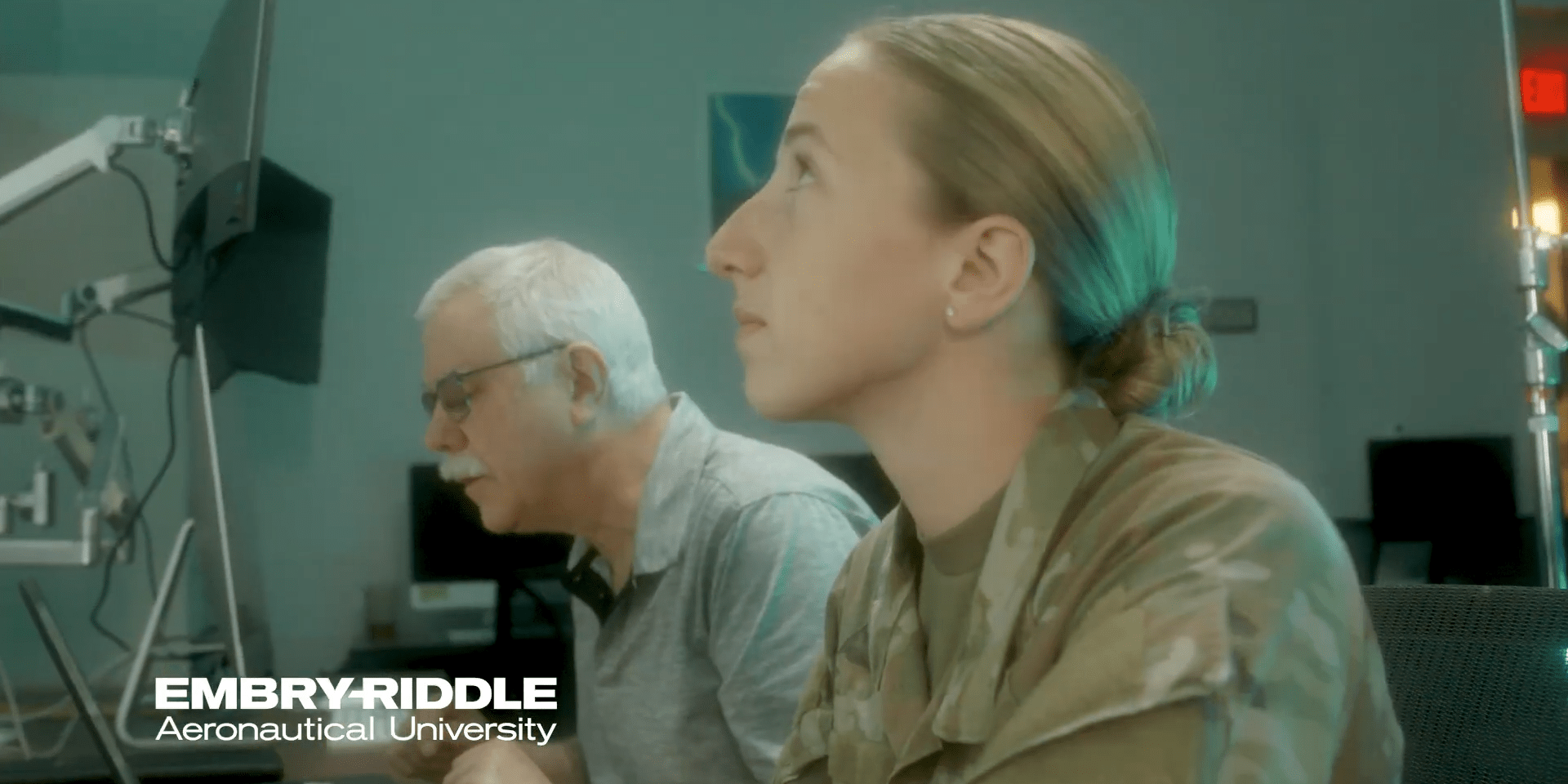
Master of Science in
Security & Intelligence Studies
The Master of Science in Security and Intelligence Studies combines science and technology with advanced courses to enhance career prospects for leadership roles.
About the Master of Science in Security and Intelligence Studies
Global security remains a critical issue for governments, companies and the public. Embry-Riddle’s Master of Science in Security and Intelligence Studies provides students with the expertise and skills necessary for a career in intelligence analysis, law enforcement, corporate security or cyber intelligence security.
The curriculum integrates science and technology with advanced intelligence and security topics. Students benefit from expert faculty members with academic qualifications and extensive professional experience in security, intelligence, law enforcement and cyber intelligence. The program emphasizes hands-on learning and research opportunities through small classes and personal attention from instructors.
Why You Should Study this Degree
Security and Intelligence Studies involves analyzing strategies to protect national interests, organizations assets and individuals from threats, and making informed decisions to safeguard information. A career in security may be for you if you like:
- Enjoy utilizing advanced technology
- Investigating complex puzzles
- Protecting others from emerging threats
Student Learning Outcomes
Opportunities you will have while studying for a national security and intelligence degree:
- Mastery of clear and effective communication of ideas across all communication environments.
- Possess a basic understanding of the requirements and strategies for managing and protecting assets in the public and private sectors.
- Possess a basic understanding of the requirements and strategies for providing public and private sectors with decision support and decision advantage.
- Work effectively in interdisciplinary teams to identify, research and address pressing issues in security and intelligence.
- Understanding of social science research methods.
Security and Intelligence Studies Career Opportunities
Careers and Employers
Setting the standard, Embry-Riddle graduates are set to enter the workforce in top companies, including:
- Cobham Aerospace
- Federal Bureau of Investigation (FBI)
- Transportation Security Agency (TSA)
- U.S. Department of Defense
Graduates with a Security and Intelligence Studies degree often secure roles as:
- Cyber Operations Officers
- Cyber Security Rationalization Analysts
- Intelligence Analysts
- Special Agents
Security and Intelligence Studies Salary Information
A degree from Embry-Riddle provides the opportunity for competitive salaries in security, averaging $80,709 annually, as of 2024.
DETAILS
About Security & Intelligence Studies at the Prescott, AZ Campus
The Master of Science in Security and Intelligence Studies (MSSIS) provides professionals with the skills to excel in intelligence analysis, operations, military-political studies, law enforcement, corporate security and cyber-intelligence. It combines science and technology with advanced national security and intelligence courses.
The program is part of the Department of Global Security and Intelligence Studies within the College of Security and Intelligence. It offers advanced instruction in research skills, analytical methods and clear communication of findings, enhancing career prospects for entry-level professionals and mid-level leaders in cyber intelligence and corporate security communities.
Tracks/Specialties and/or Certificates
While studying global studies, you will have the opportunity to select one of the following concentrations:
- Intelligence Area of Concentration: 12 credits
- Security Area of Concentration: 12 credits
Security and Intelligence Studies Information
- Credits: 36
- Online or In-Person: In-Person
- Capstone: Graduate Research Project (6 credits) or Thesis (3 credits)
Helpful Links
- Tour our Prescott Campus
- Discover the College's Faculty
- Explore the Fields of Study: Aviation & Security, Intelligence and Safety
- Find Related Clubs & Organizations
Get Started Now:
Summary
36 Credits
Estimate your tuition by using the Tuition Calculator
View Financial Aid Information
Learn about our General Education
Find out about transferring credits to this degree
Learn more about our Veterans & Military benefits
View our Academic Calendar




